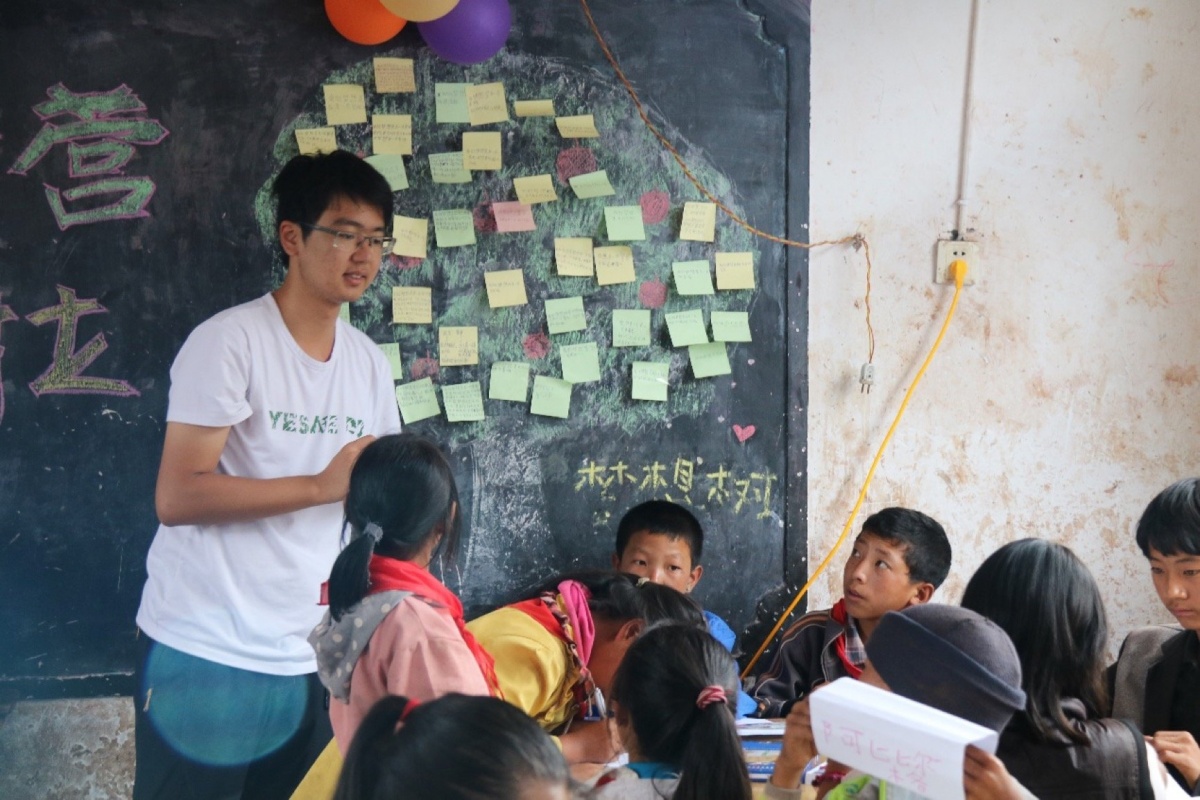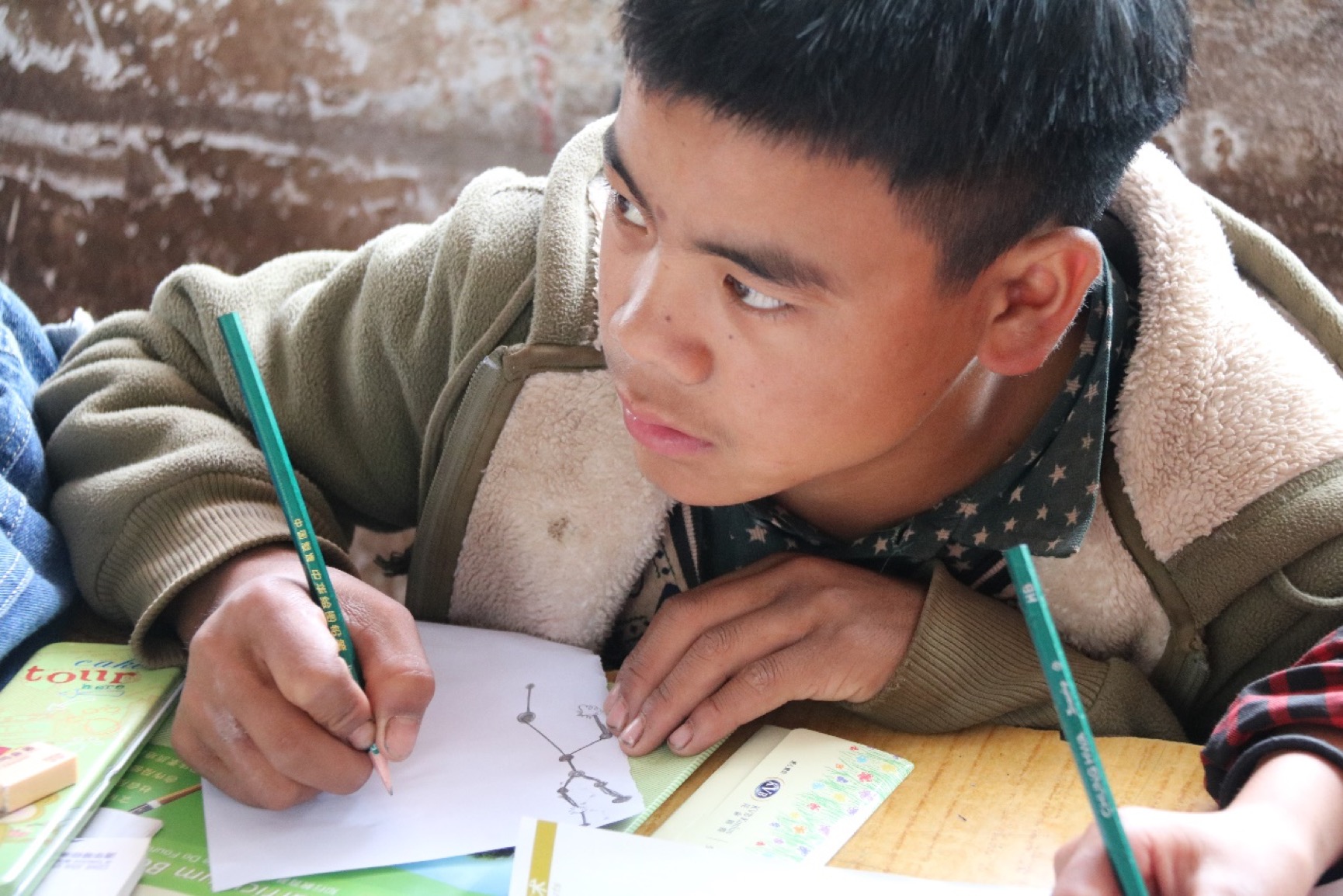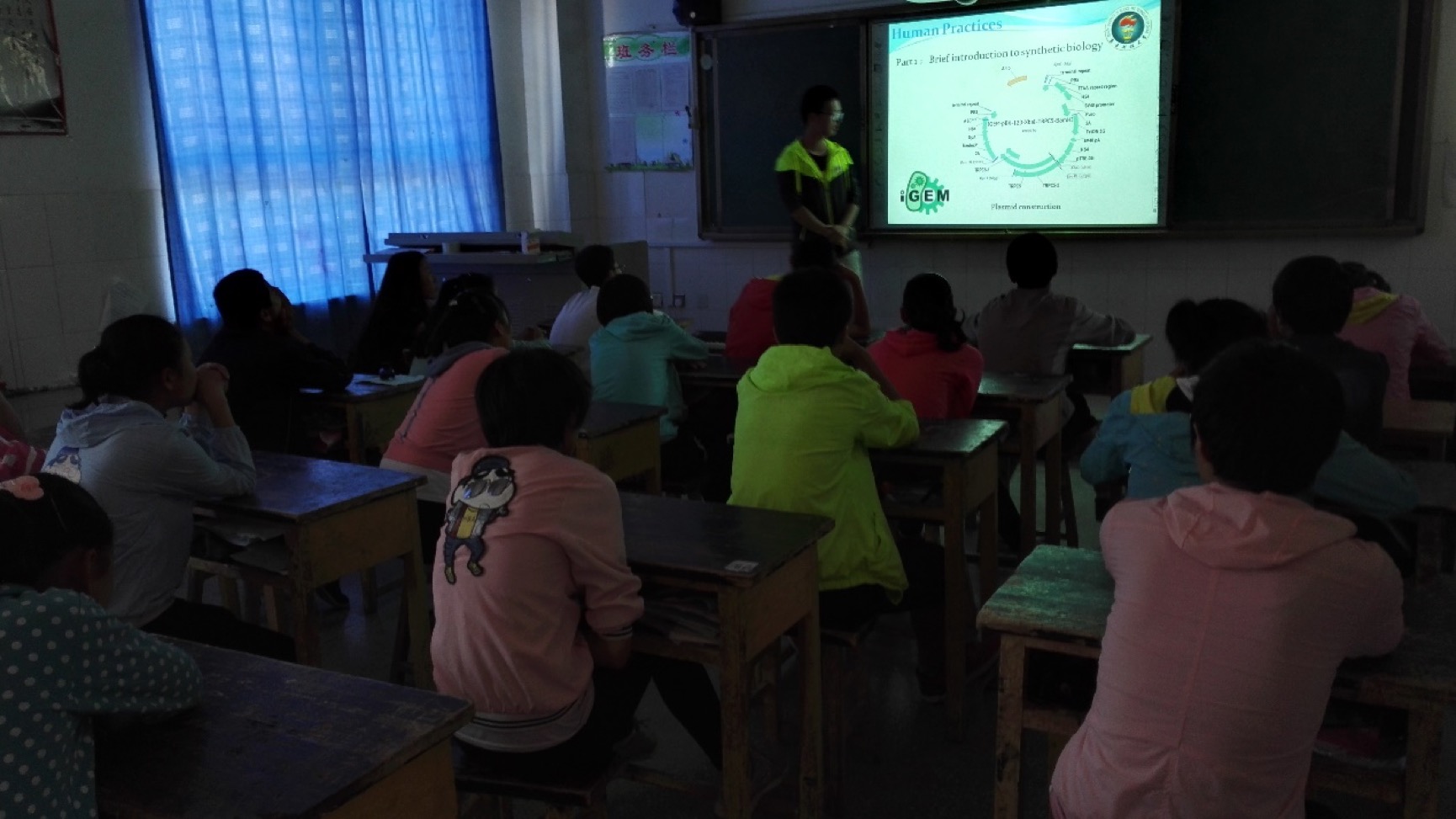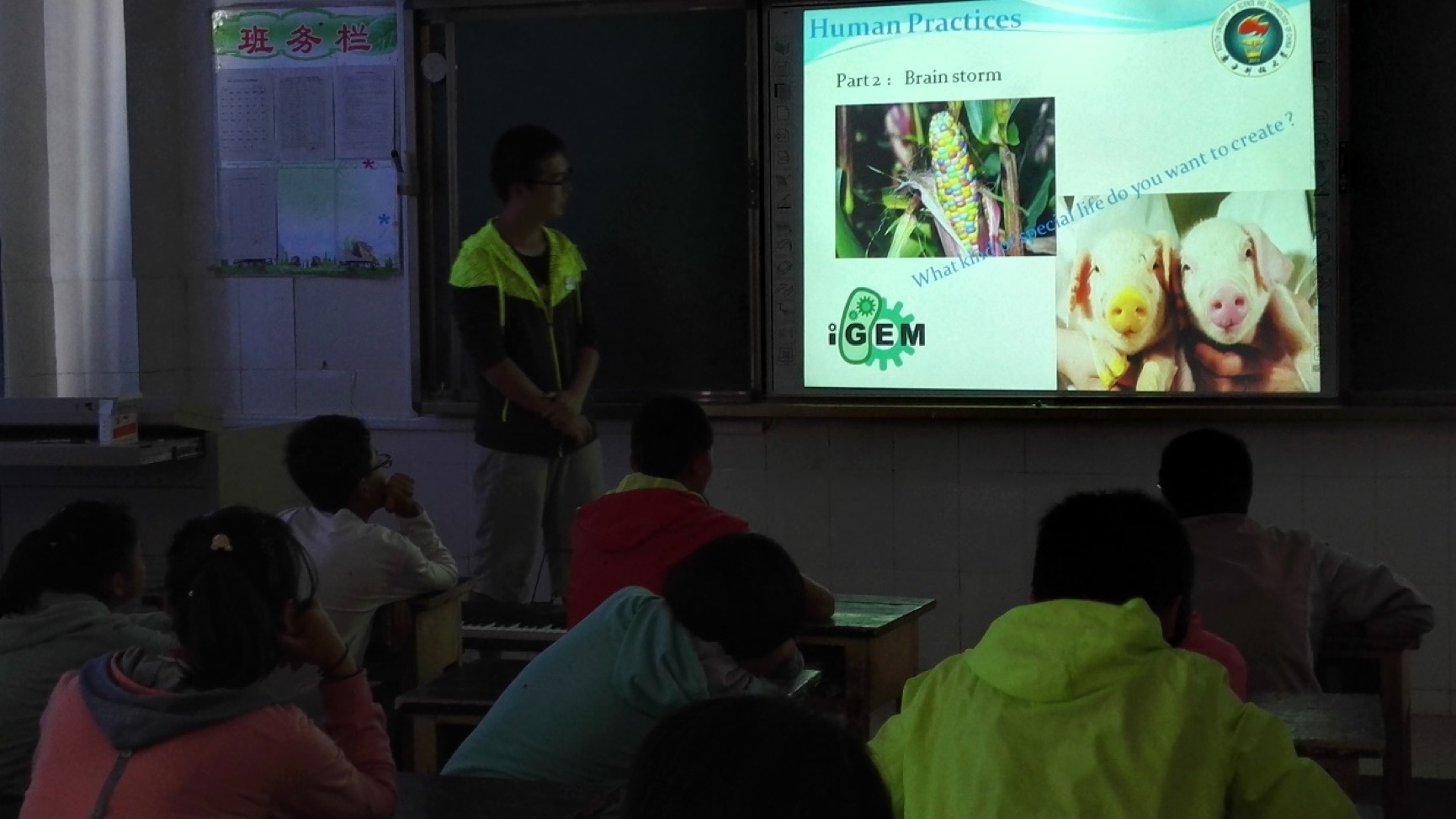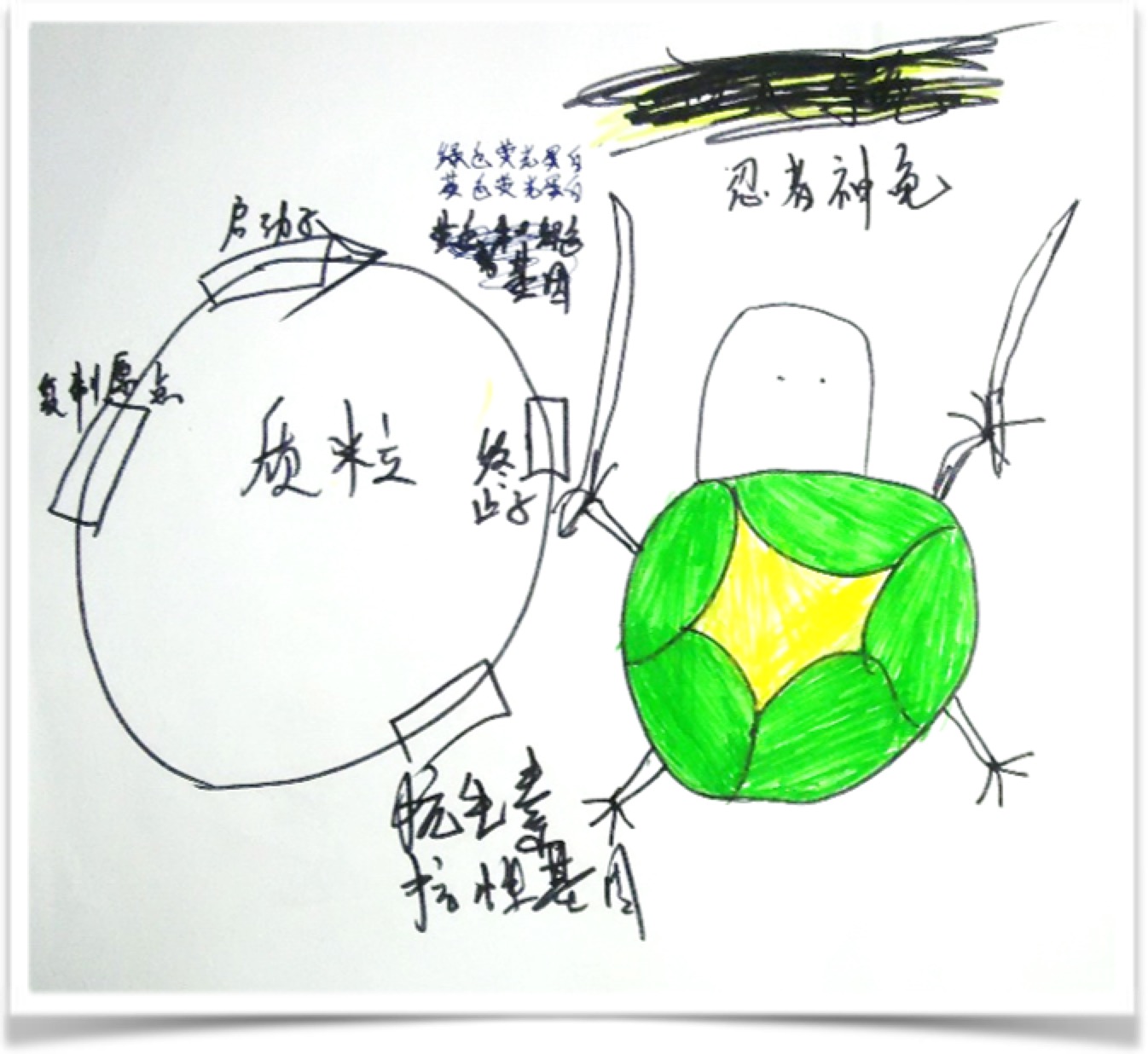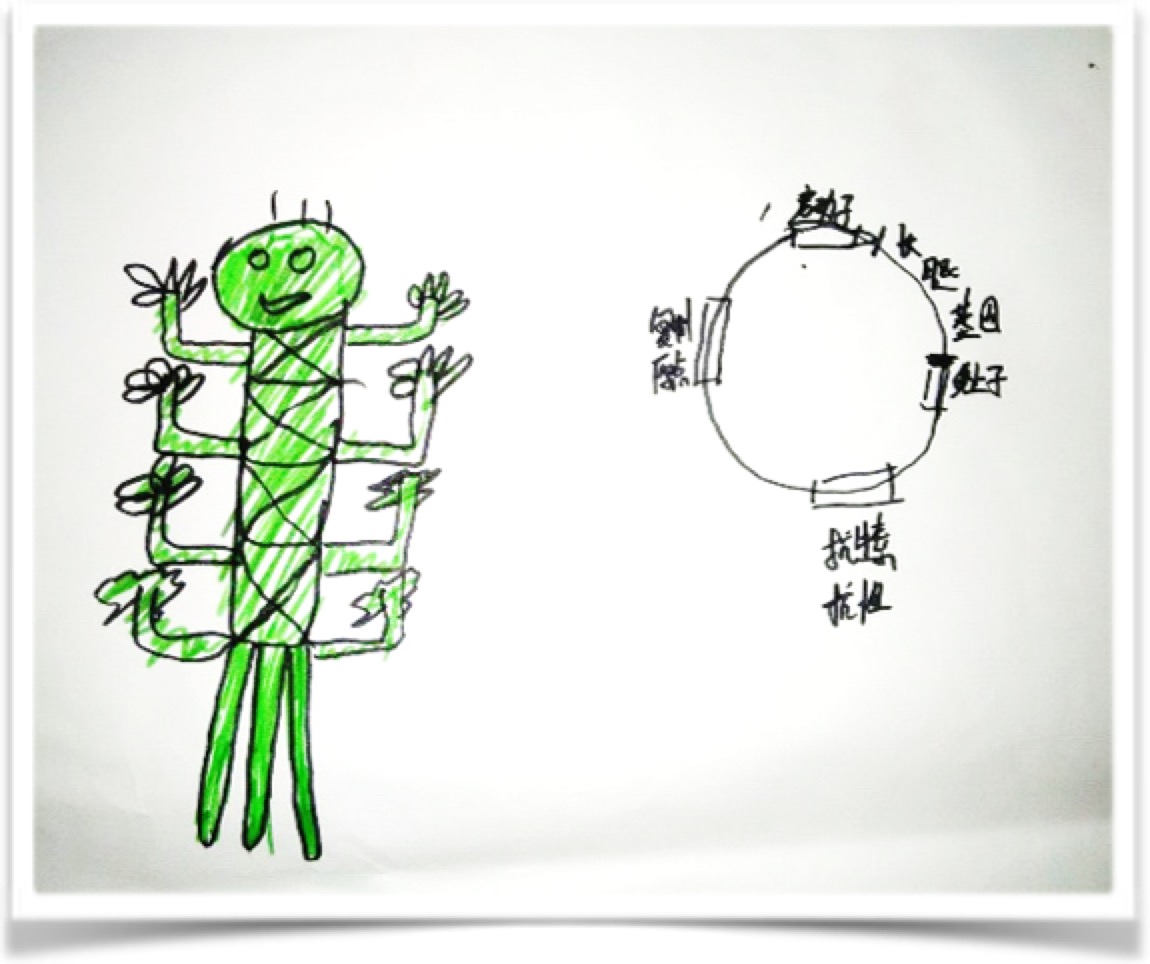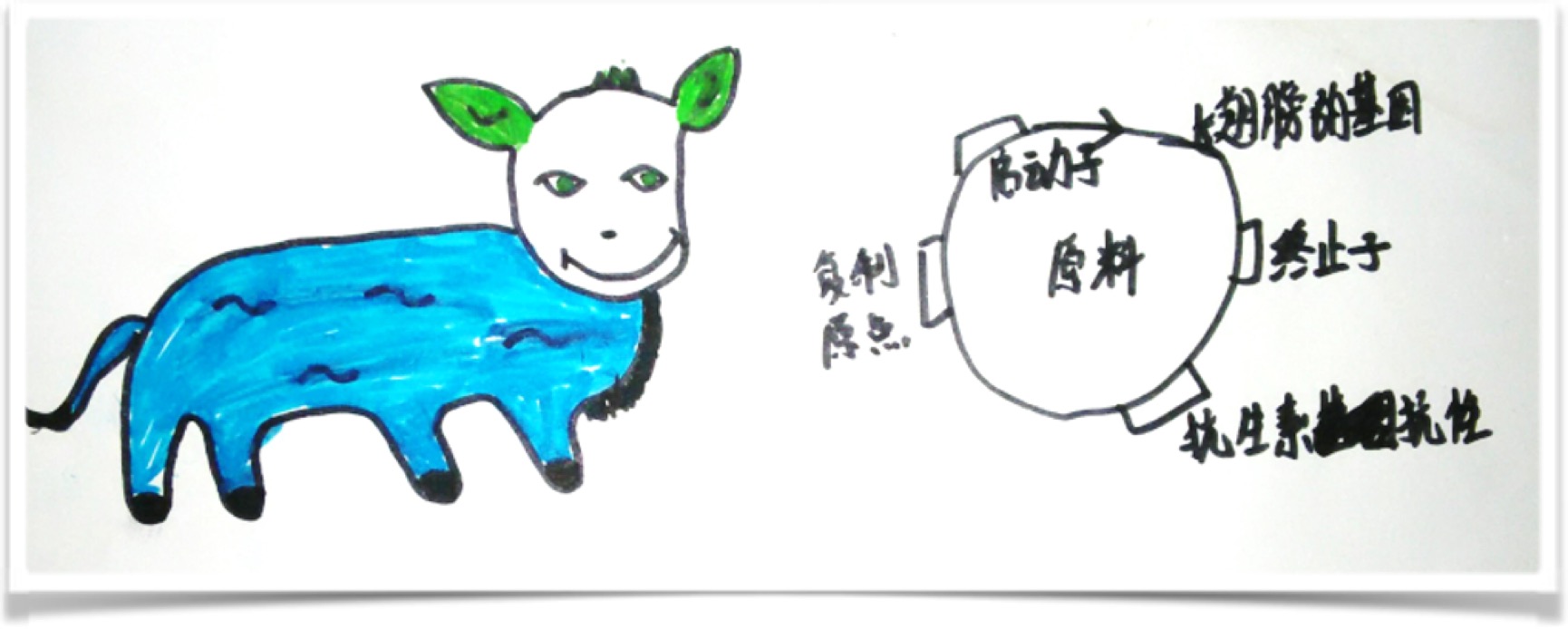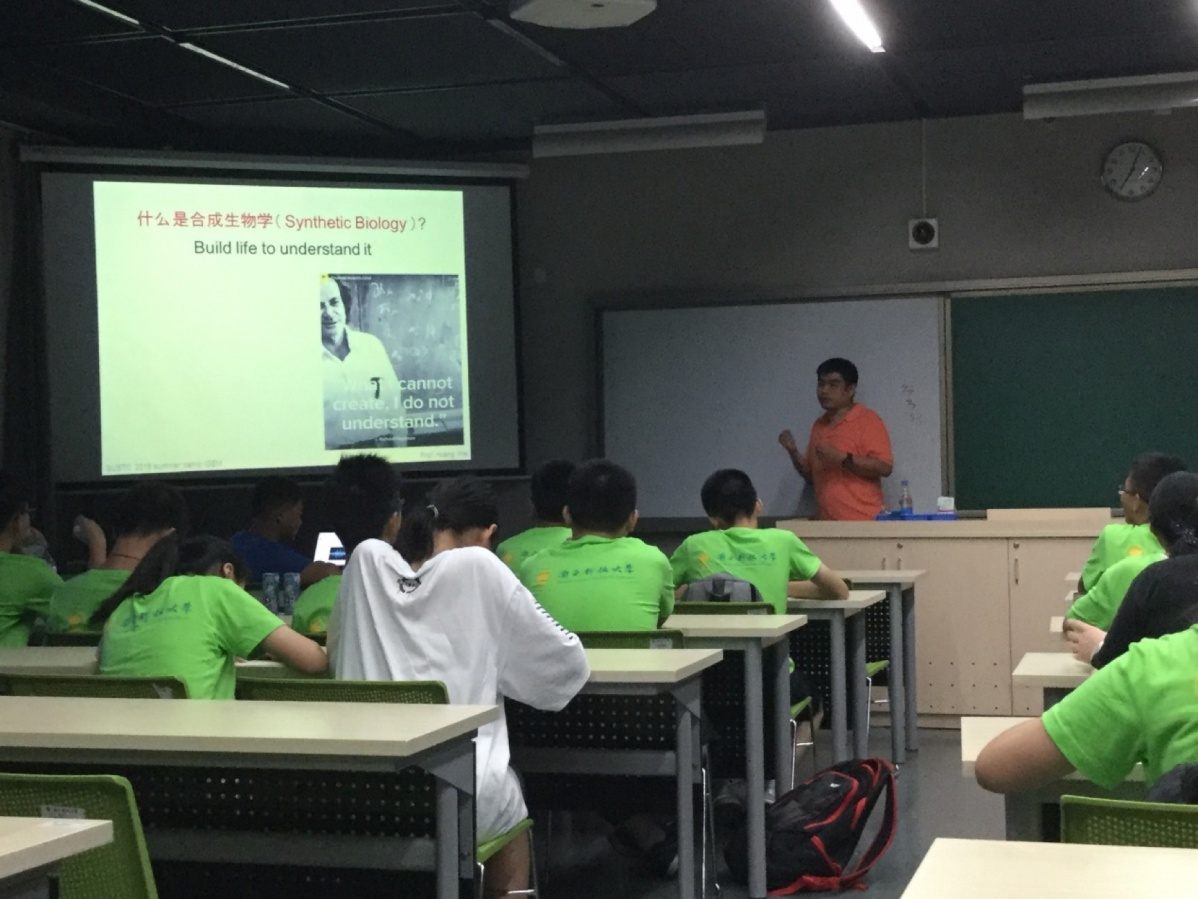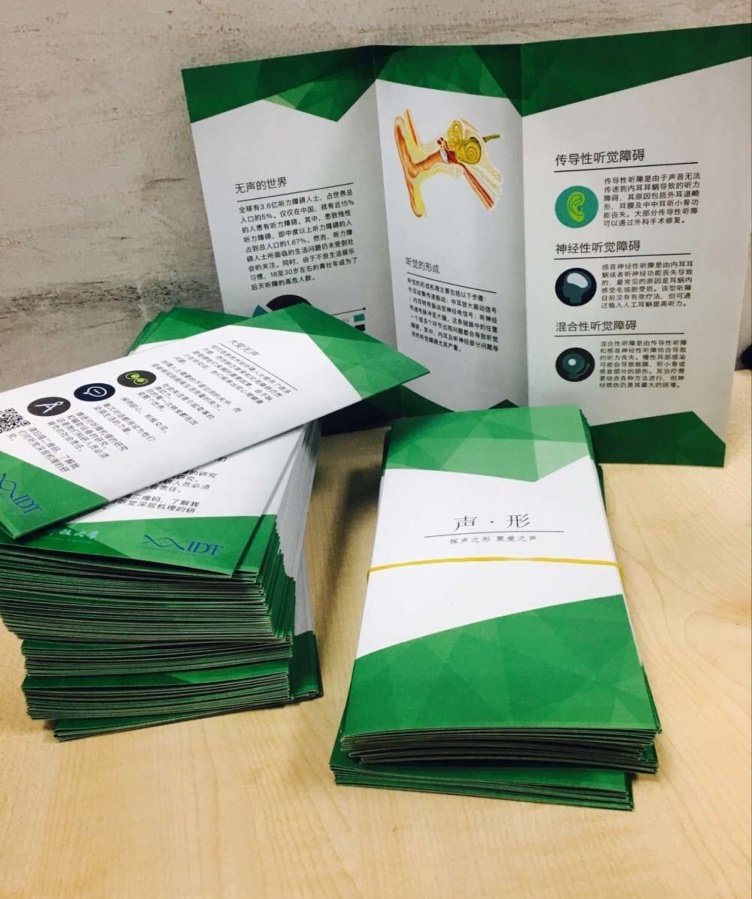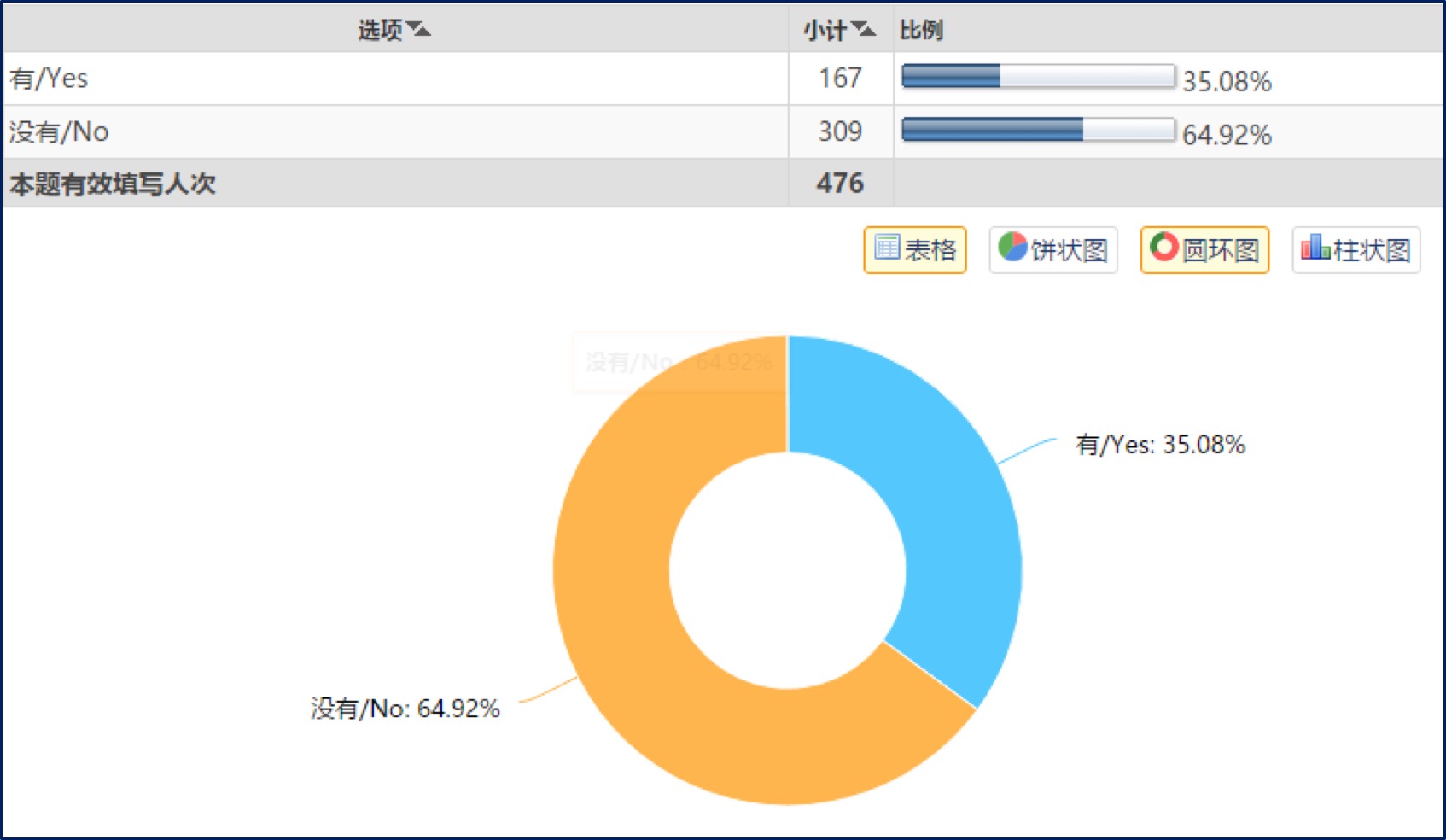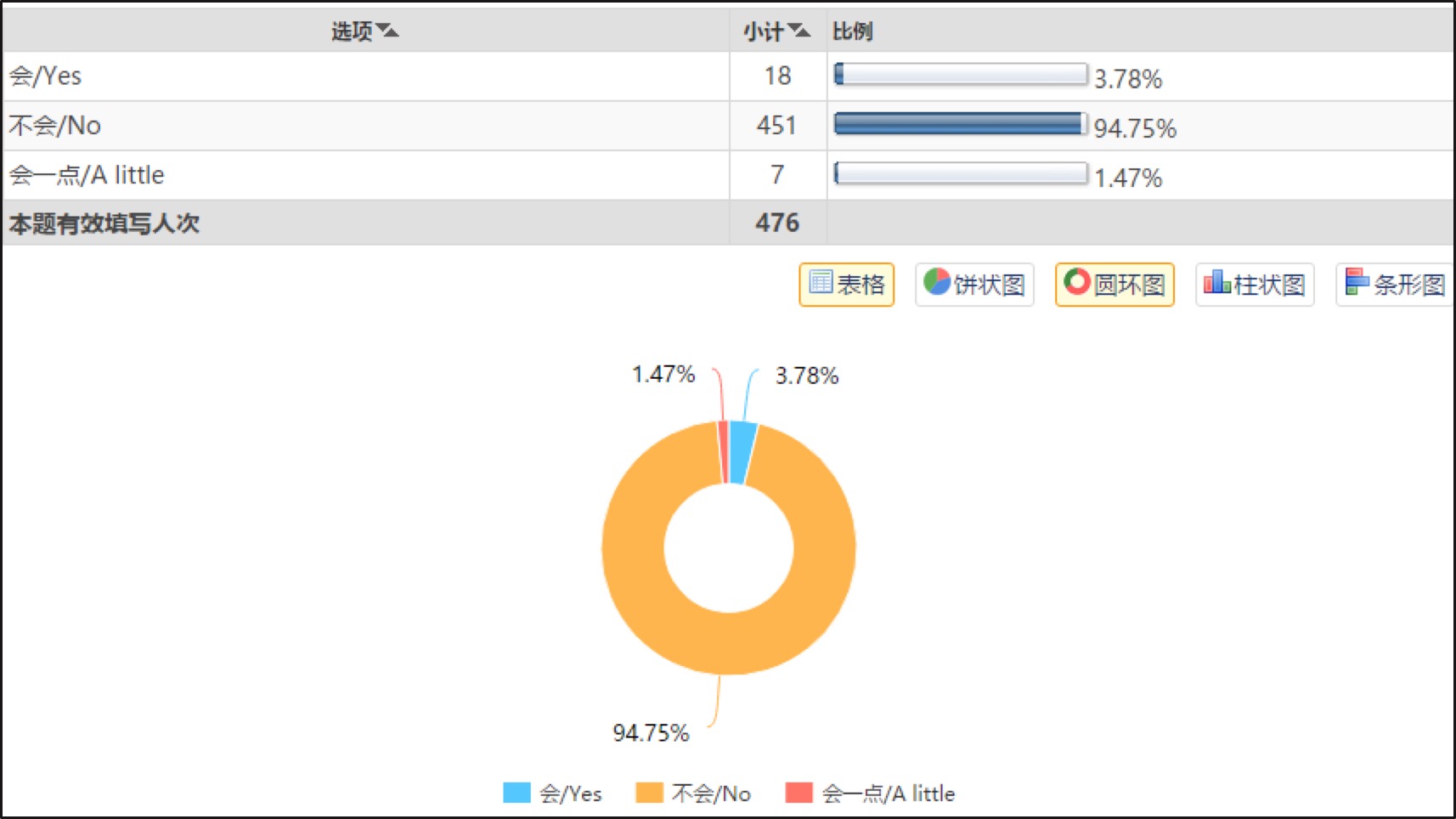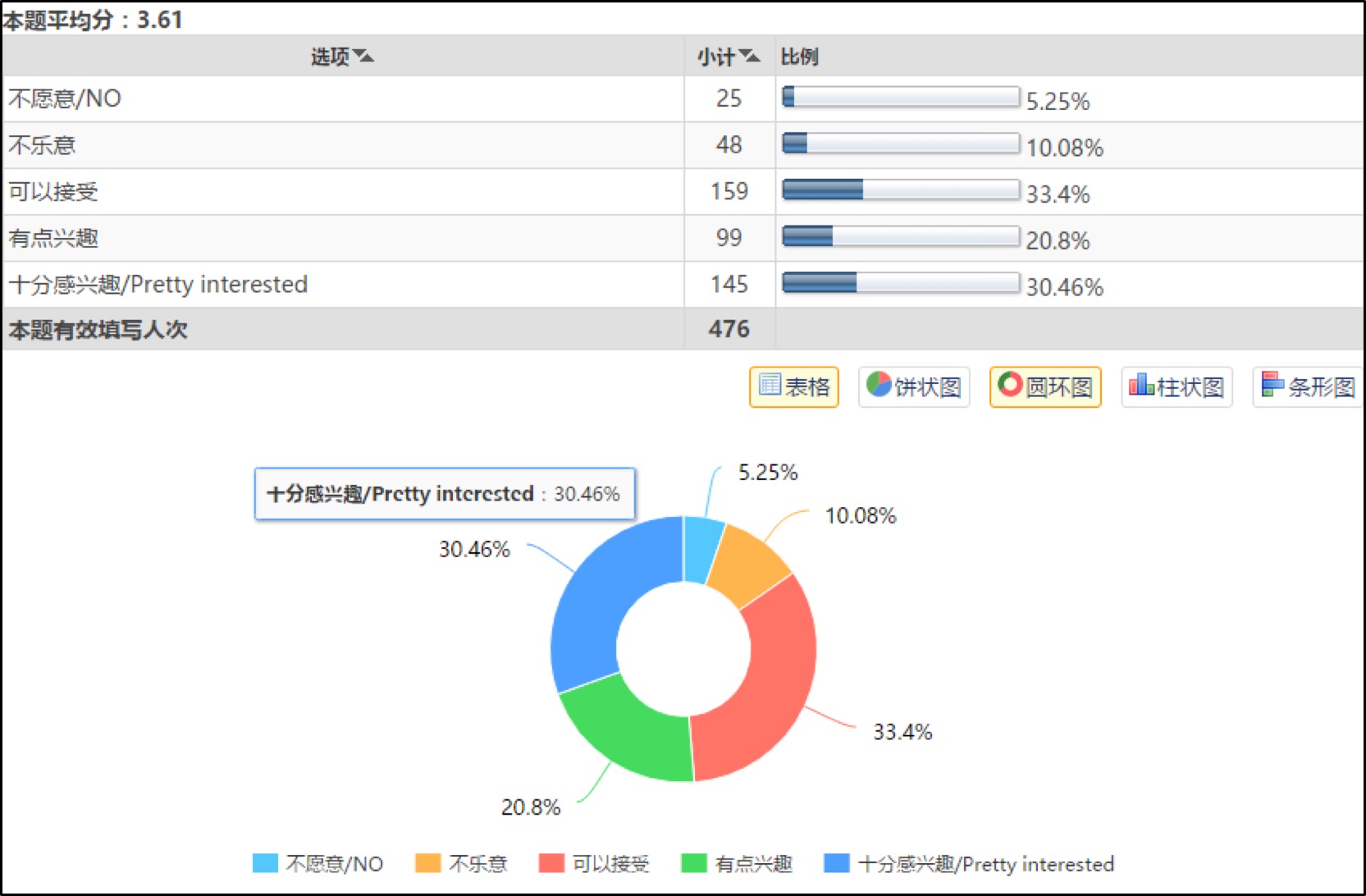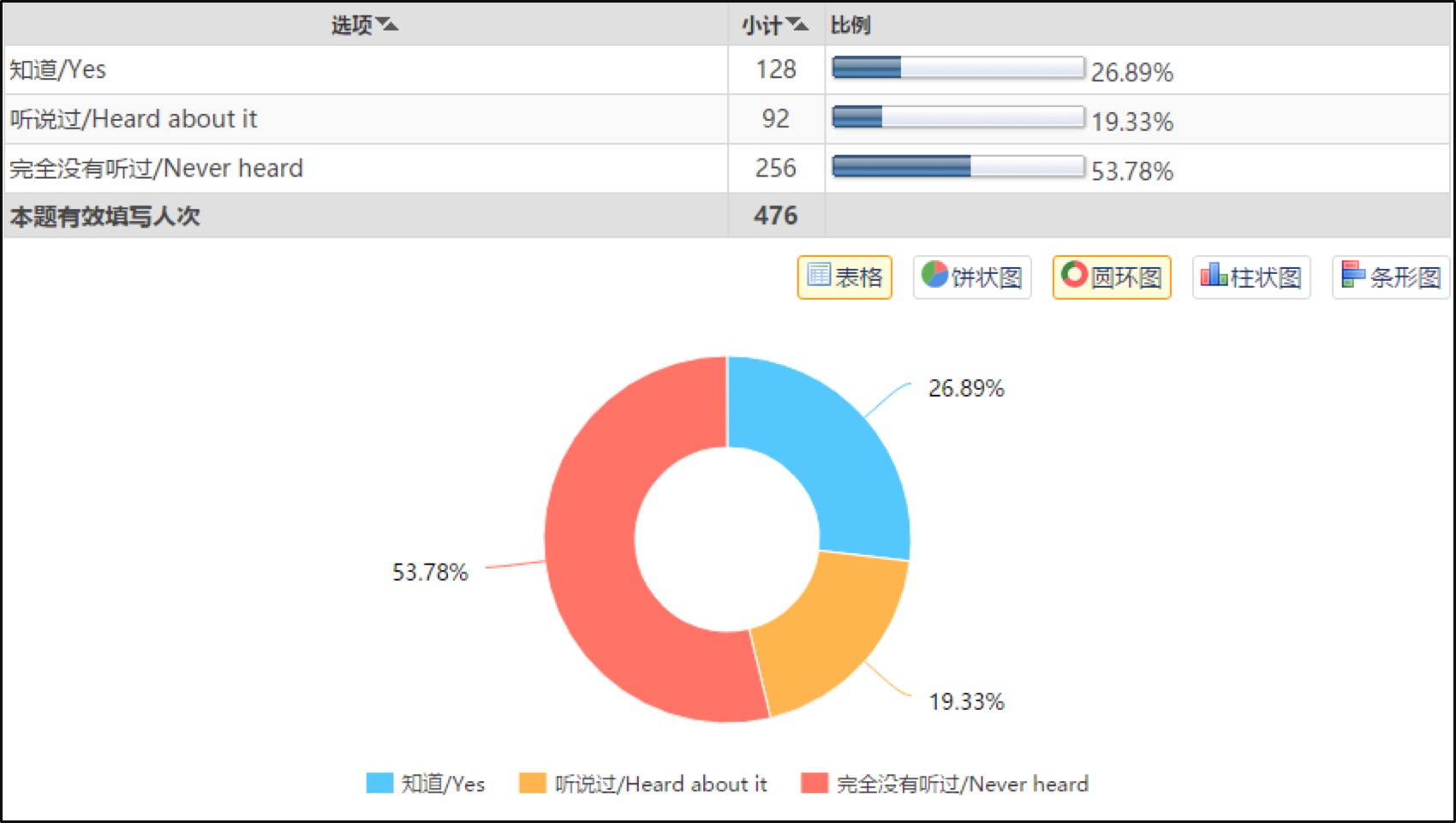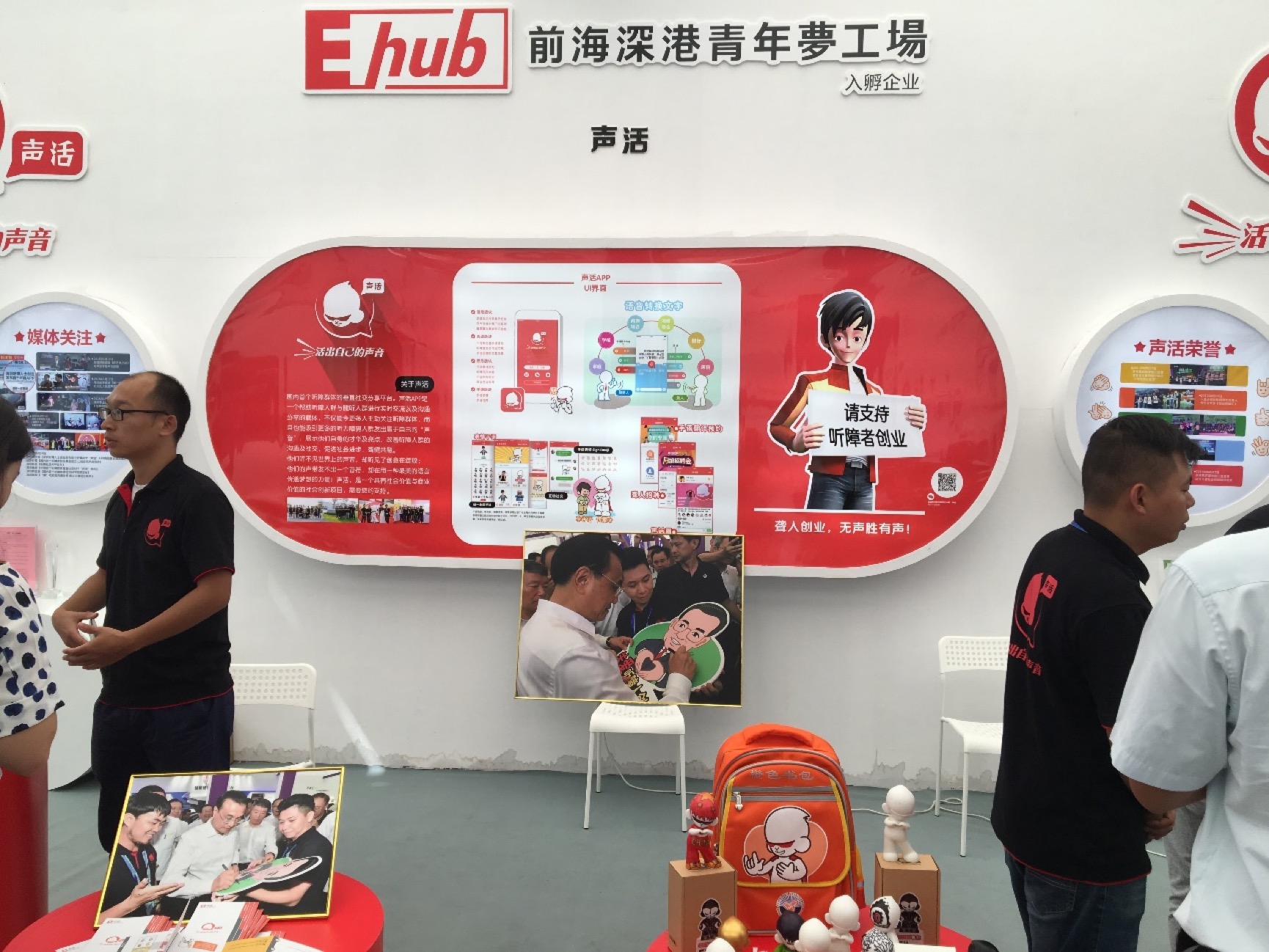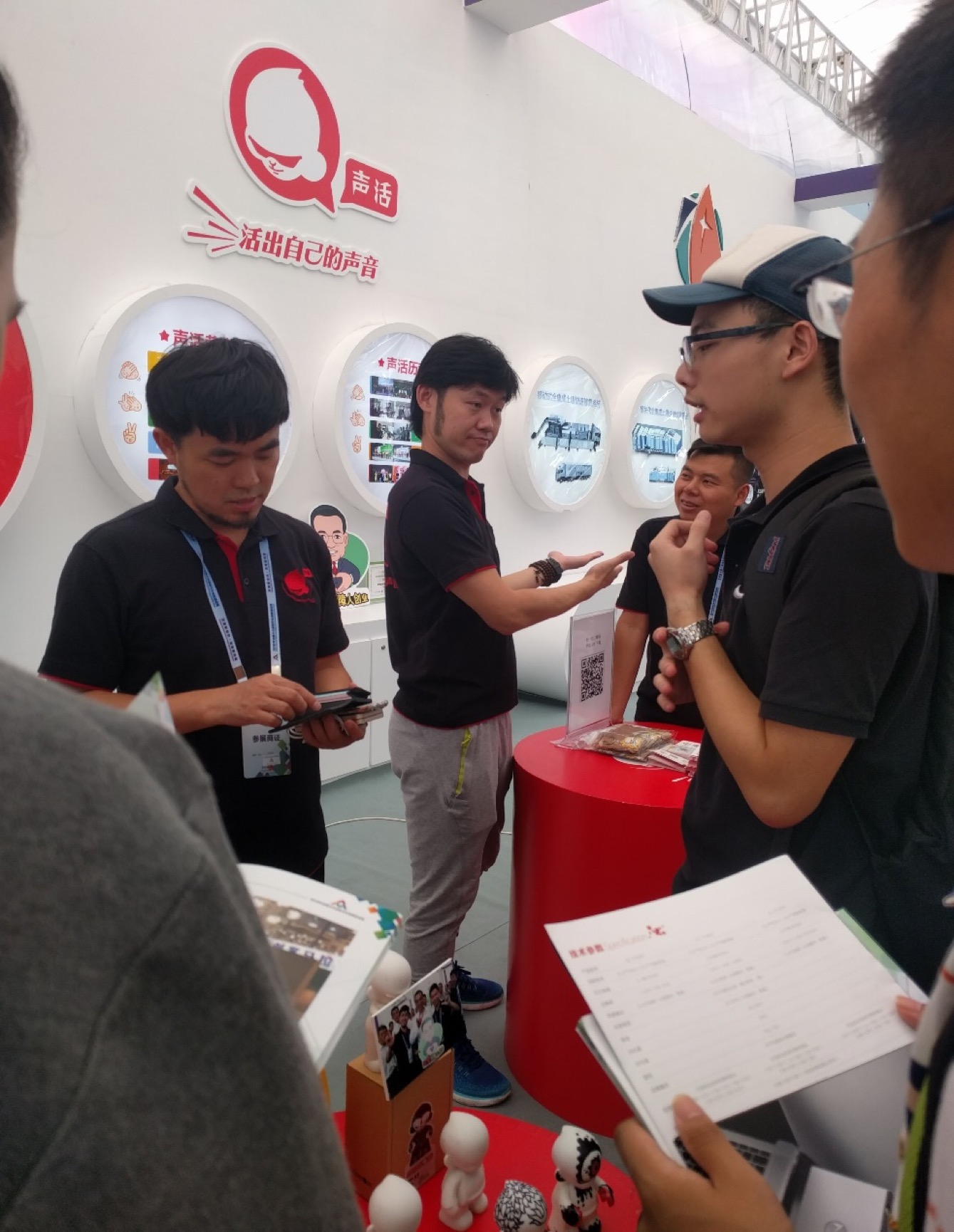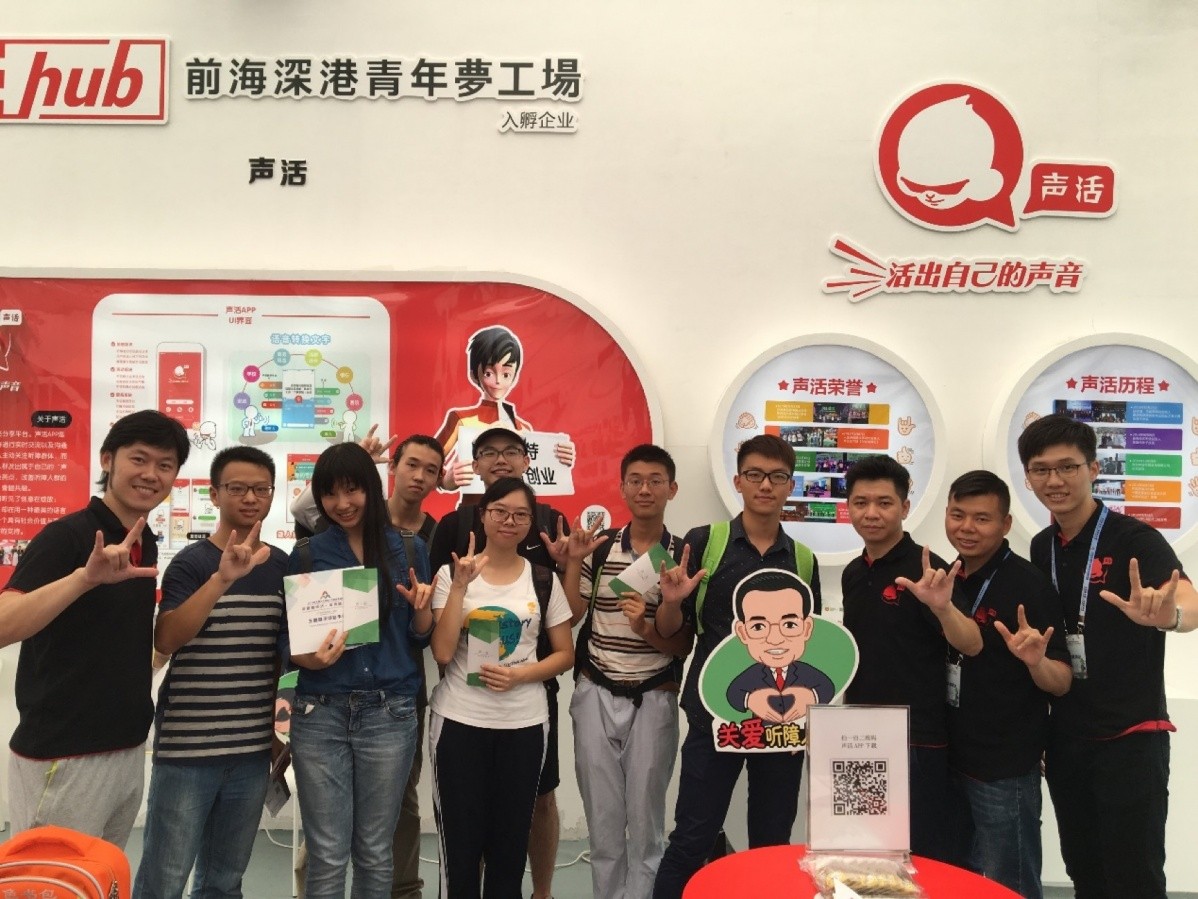
Activities
Into the people
Contents
In our Human Practices, we devote to raise people’s awareness of deafness and let them involve in to serve our society. Thus, we tried several ways to spread our idea on campus and in society.(e.g. Questionaires, brochures, lectures, interviews, etc) Meanwhile, we also collected information from different sources, including education field, government officials and charity organization,etc.
Education
We propagandized biology and synthetic biology concepts, iGEM history and ideas, as well as our project. We hope our education can cover people from different walks of life as many as possible. As a result, we pay attention to every opportunity that we can obtain to contact with people out of the lab.
Pupil & middle school students in rural areas in China
In summer 2016, some of our team members went to remote areas in Gansu and Sichuan Province in China for volunteer works. They taught primary and middle school students who cannot receive scientific and cultural education of good quality due to economic reasons. Considering interesting synthetic biology knowledge can bring happiness and inspiration to them, we briefly introduced what can be achieved by synthetic biology in an imaginative and creative way, including the knowledge of bacteria, plasmids and genes, and what we can manipulate on genes to generate a different thing. We also asked them to draw pictures of the ideal biology in their mind.
Summer Camp for High School Students
In summer 2016, high school students from different regions of China came to SUSTech Summer Camp. We devoted to prepare a lecture for them, introducing our project based on their knowledge learnt from the biology classes set by their own school. Primary PI, Dr. Wei Huang briefly introduced synthetic biology and iGEM. We collected their questions and suggestions, which may give us new thoughts about our projects.
“Although I have no biology background, I can really understand what you were talking about. Your works are really amazing and I am deeply impressed.”high school students' principal said.
Citizens and residents
In addition to student population, we thought our project must be known by a wider range of people. Besides, to make our “Sound Visualization” closer to life, we hope to make our effort turned into actual therapy idea or new way to modify genetic structure in response to mechanical stress or sound. We start to concentrate on those who have problems with hearing, not only limited to those with damaged hair cells in ear or other components of ear, but also all of the people with hearing loss in different extents.
We designed a questionnaire on the Internet (link: sojump) to collect information about the understanding and care about hearing-impaired people, and to find a way that can help them in the most comprehensive and effective way. Meanwhile, we included introduction about iGEM and the basic status of those people and we called for attention to care about them at the beginning of the questionnaire.
To minimize the acquired hearing impairment caused by noise and electronic equipment, we also designed a brochure named "Shape and Sound". We printed more than 500 pieces and handed out on our campus as well as several residential communities. In the 6-pages brochure, we introduced the mechanism of hearing forming and the status of hearing-impaired people around the world. We called for concerns about them and also gave several tips for ear caring in daily life in order to reduce chronic hearing loss, which is popular nowadays but draws little attention actually for time course.
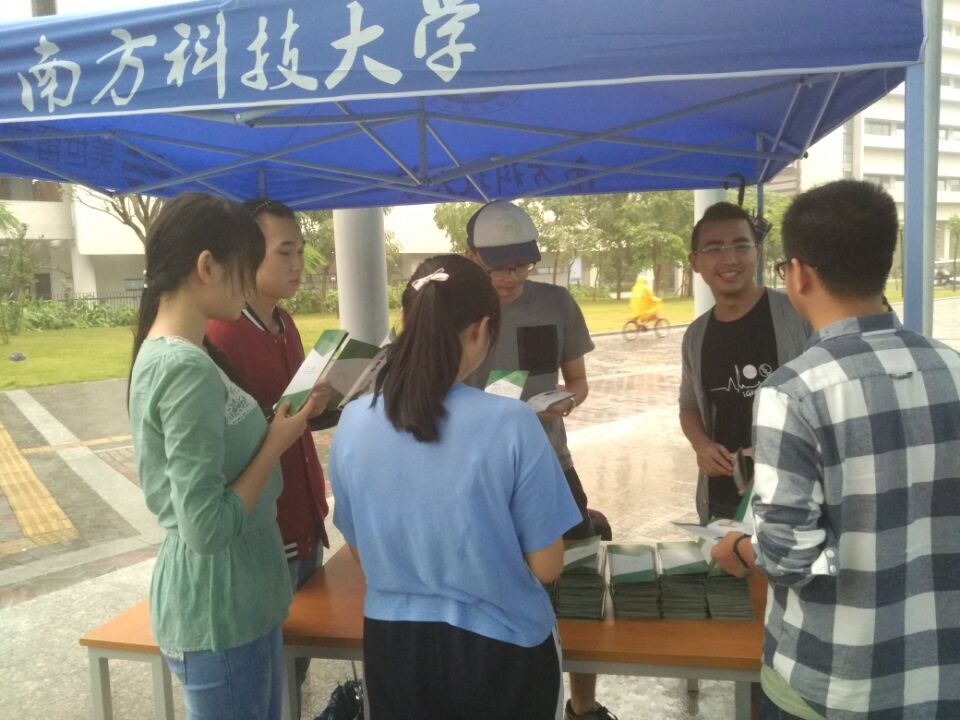
Approaching the Public
We designed a questionnaire on the internet (link: sojump ) and investigated about whether people know about iGEM, and their experiences related to hearing-impaired people. We collected about 500 answers and did data analysis shown as below.
- Question 1: Have you ever communicated with hearing impaired people in your daily life?
- Question 2: Do you know how to use sign language to communicate with people?
- Question 3: Do you find it difficult to communicate with people with hearing difficulties?
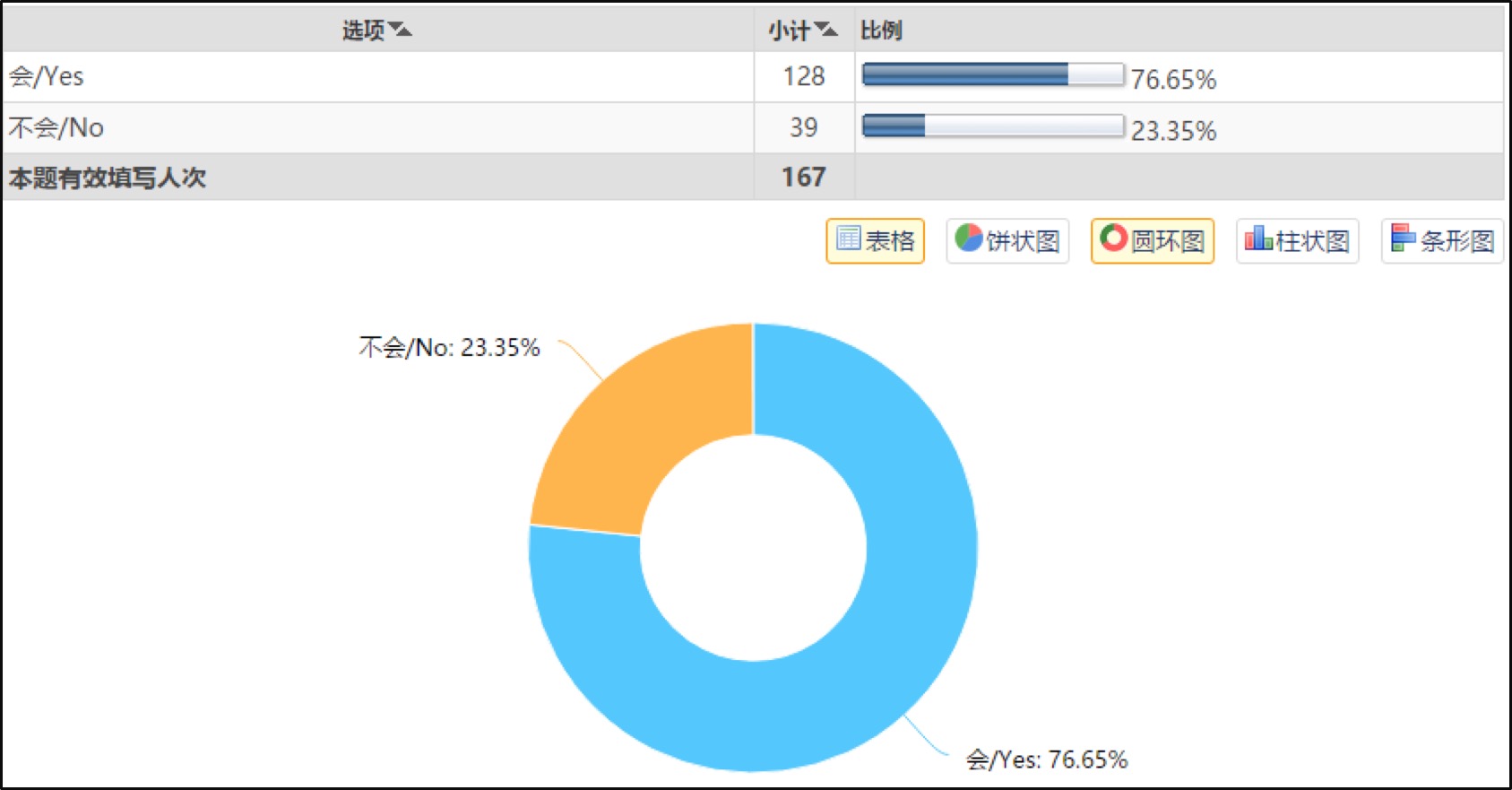 For those who have communicated with hearing-impaired people, about 80% feel it difficult. Undoubtedly, this is the truth. To eliminate this trouble, on one hand, sign language should be popularized. On the other hand, hearing aids and cochlear implants and clinical therapies need to be improved and pervaded.
For those who have communicated with hearing-impaired people, about 80% feel it difficult. Undoubtedly, this is the truth. To eliminate this trouble, on one hand, sign language should be popularized. On the other hand, hearing aids and cochlear implants and clinical therapies need to be improved and pervaded. - Question 4: If sign language classes is added in general education as optional courses, would you like to learn some simple sign language?
- Question 5: Do you know iGEM? (before answering this questionnaire)
Consultation
To obtain more information about the life of people with hearing impairment, we consulted specialists who work in various areas, as well as some relevant local charity or official associations. From the dimension of Policy, Law, Medication, Philanthropy and Research, we consulted lawyers and judges, doctors, professors and managers of several charity organizations. At the same time, we introduced our project and received suggestions to promote our project.
Law
We are curious about laws that about the rights of people with hearing loss and the investigation process in case of surdomute criminal suspects. We consulted a Justice Liu and a legal practitioner, Miss Zhao.
It is said that in China, the Criminal Law and the Law of Criminal Procedure Law aim to embody the humanitarian. Deaf and mute are given appropriate preferential treatment and Summary Proceeding cannot be applied in these cases:
- Cases of crime by deaf-mutes can be dealt with leniently.
- A deaf and dumb or blind criminal is expected to receive a lighter or mitigated punishment or even be exempted from punishment as the case may be.
- A deaf and dumb should be provided for with people familiar deaf and dumb gestures;
- A deaf and dumb with no defender should be provided with legal aid;
- Forcing disabled people to beg constitutes a crime;
- Utilizing and abetting the crime of persons with disabilities should be cracked down according to law, etc.
Advanced Technology
The most efficient way to improve hearing so far is using hearing auxiliary equipment. There are two main types of hearing auxiliary equipment: hearing aids and cochlear implants.
- Hearing aids: for conductive hearing loss;
- Cochlear implants (CI): for sensorineural hearing loss.
We consulted Prof. Chen Fei who studies hearing aids and speech recognition technology for cochlear implants. He stressed the importance of attention to hearing-impaired people, because this big problem has not been concerned enough as it deserved.
Beyond hearing loss, pathologically caused hearing loss may also cause complications. The lowered hearing nerve activity for long is potential to cause inactivation of these neurons and lead to impermanent hearing loss. More significantly, due to communication difficulties or discrimination, hearing loss may cause psychological problems.
CI, together with hearing aids, bring sound to those who have never heard anything. However, the cost of a CIs is higher than 10,000 dollars and requires high medical operation expenses. There are only 20,000 people can enjoy the ease brought by CI due to the high price. As a result, we need people to focus on this issue. We hope people can devote to take part in research, charity or simple spread this idea, to make more people able to enjoy the sound.
At the same time, he believes that though hearing aids and CIs are the most direct and efficient way currently, they cannot solve the problem of hearing loss thoroughly. Protect our ears to prevent more hearing impairment cases, together with elaborate studies on hearing using biological methods, tend to be the profound and lasting resolution. He mentioned that our project idea is good to solve the root of the problem.
Medication
After consulting with otologist, we learnt some knowledge about treatment for hearing-loss people.
- Ear is composed of four main parts. Outer ear is the entry of sound waves. Middle ear amplifys sound waves. Inner ear is responsible for the transduction of sound energy to electric signals. Acoustic nerve transmits the electric signal to the nerve center. All parts are important for the ability of hearing and any damage will result in hearing loss or disability.
- The treatment for hearing loss involves reconstruction of the ability of each component. Normally there are five major approaches, external ear reconstruction, tympanic membrane repair, ossicular chain reconstruction, hearing aids, and cochlear implantation. Those surgical cure methods generally recover the structures in the ear for normal function, and hearing aids create the sound vibration with engineering methods.
- Sensorineural hearing loss is a hearing loss the most difficult to cure. At present, for mimicking function of cochlear, cochlear implants (CIs) are used to create special electric signals responding to different sound signals it catches. However, ear can sense more than 100,000 kinds of sound frequencies, while the manufacture we made can only generate about one hundred kinds of sound frequency. As a matter of fact, the signal generated by CI is also different largely with natural cochlear.
- For the most important part, CI is more than expensive for a normal family.
- Apart from those function and cost issues, CI is potential to lead to immune response and other problems for the body as an artificial equipment in a human’s body.
To deal with these problems, firstly, we believe that we should advocate people to protect their ears. In addition, for people who have suffered from these problems, we want to do something to improve their social acceptance and discover better resolutions for hearing loss treatment.
Charity associations
We consulted several local charity associations about the issues they concern related to hearing-impaired population. We also expressed our interests and we hope to further our Human Practices after the Jamboree.
- Lions Club of Shenzhen: They irregularly hold activities to help blinds in rural areas of China under the help of government. In Shenzhen, they keep tight contact with community health center all over the city and they periodically organize health care for people with hearing impairment. Other events including helping them with employment and other living problems and holiday consolation are often arranged. They also have special service team formed by individuals and authorized to develop activities on their own.
- Two Cups of Water Sign Language: They set up sign language class at Shenzhen Centre Book Store, one of the biggest book store in Shenzhen, to teach people for free. According to their person in charge, people with hearing loss account for 1/10 to 1/5 who participate in learning.
- Shenzhen Ear Caring Plan: This organization provide hearing aids and Cis for child with hearing loss, aiming to let them go to school and receive education just the same as normal healthy child.
We also cooperate with Southern University of Science and Technology Volunteer (SUV), a charity group organized by students in SUSTech. They have arranged activities to help people with visual disorder and their work is very impressive. Helping with hearing-impaired people could be the next thing they plan to do.
Activities
Commonweal organizations
After collecting and analyzing our questionnaires, we found that most people lack the experience of communicating with severe hearing-impaired people. However, they showed great enthusiasm on learning more about them and caring them as possible.
We contacted some charity organizations which regularly provide lectures and information for the public. For example, Two Cups of Water Sign Language set up courses every week in Shenzhen Center Book Store for people to learn simple sign language.
We think the biggest problem of people with hearing loss is caused by communication difficult. If normal people can learn basic sign language, they can have more contact with hearing-impaired people and thus discrimination and prejudice on this population can be largely decreased. Further, it is the simplest way to make people with hearing loss feel comfortable in this society.
The questionnaire also shows many people lack basic knowledge about hearing loss. Hence, we printed booklets and also set up several public media accounts to make the public focus on things about hearing loss people including news, scientific education, welfare, etc.
In the future, we plan to join these organizations and call for more people to participate. Also, we recommended SUV to collaborate with them and create more chances for SUSTecher to help people with hearing loss.
Also, due to the considerable people who showed their interests to learn sign language during our investigation, we will propagandize sign language teaching on our social media constantly.
Company cooperation
Notably, in the questionnaire, some interviewees suggested that there could be some applications (APPs) on cellphone, functioning to simplify the communication between normal people and hearing-impaired people, and thus make people with hearing loss convenient to contact.
Luckily, the Innovative and Entrepreneurial Talent Activities (IETA) was held in Shenzhen on Oct. 13-15th. There is a software company fulfilled this proposal. It is worth mentioning that two leader of their team are people suffering from hearing disability. The application, named Deaf Life, can help with real time communication for hearing-impaired people and thus improve living quality of them. It was said on their website that, Deaf Life is not only a way for more people to pay attention to the hearing-impaired group, but also to attract more hearing impaired people to express their own "voice", to display their own talent and highlights. It also allows them to live better in our society, to the world, when communication with other groups is no longer an obstacle.” ([http://www.deaflife.cn/ See more] ).
On Oct. 13, excitingly, current Chinese Premier Li Keqiang visited the IETA and was especially interested in Deaf Life. He expressed his favor on entrepreneurships by people with hearing loss and also encouraged the public to care and support them.
We designed a lot of activities in common. As for now, we promoted their APPs on our social media. We will invite them to our school for a talent show and other activities. In addition, we sent them our booklets introducing ear caring tips and calling on public awareness on hearing loss.
Multiple Integration
At the beginning of our project, we set up our goal as sound visualization. We prepared for every part of our project based on papers we searched. We found that the sound receptor is the biggest problem for the construction of the whole system, while there is no direct receptor of sound on cell membrane.
During our Human Practice consultation, one of the professors, Fangyi Chen, who studied on artificial cochlea gave us a hint about looking for mechanically gated channels in human ears. Actually, the normal function of ears is dependent on a system that realize amplification and subsequent transduction from sound wave to shear force. Given those suggestions, we read a paper about channels on plant cell membrane may take responsibility for their ability of sound sensing, which suggests the possible applications of our project. [1] Also, we designed microfluidics and other stimulus to test our system.
When we studied advanced knowledge about sound-sensitive channels, we consulted Dr. Zhiyi Wei majoring in Biochemistry& Structural Biology suggested that if we want to achieve better efficiency, we ought to use directed evolution methods to strengthen the sensitivity on protein level.
References
- ↑ Mishra, R. C., Ghosh, R., & Bae, H., Plant acoustics: in the search of a sound mechanism for sound signaling in plants., J Exp Bot, Retrieved from http://www.pubfacts.com/detail/27342223/Plant-acoustics-in-the-search-of-a-sound-mechanism-for-sound-signaling-in-plants.

